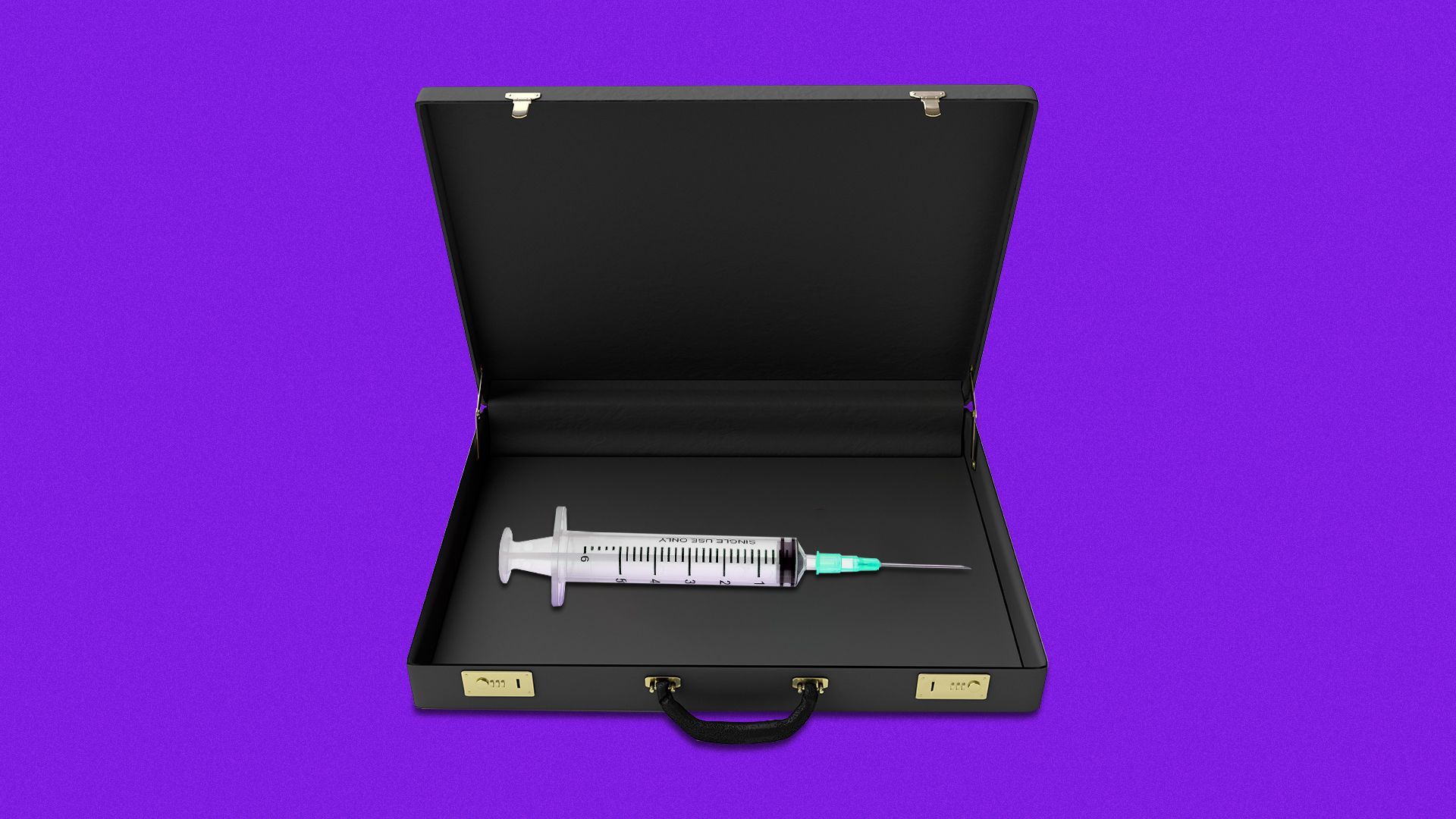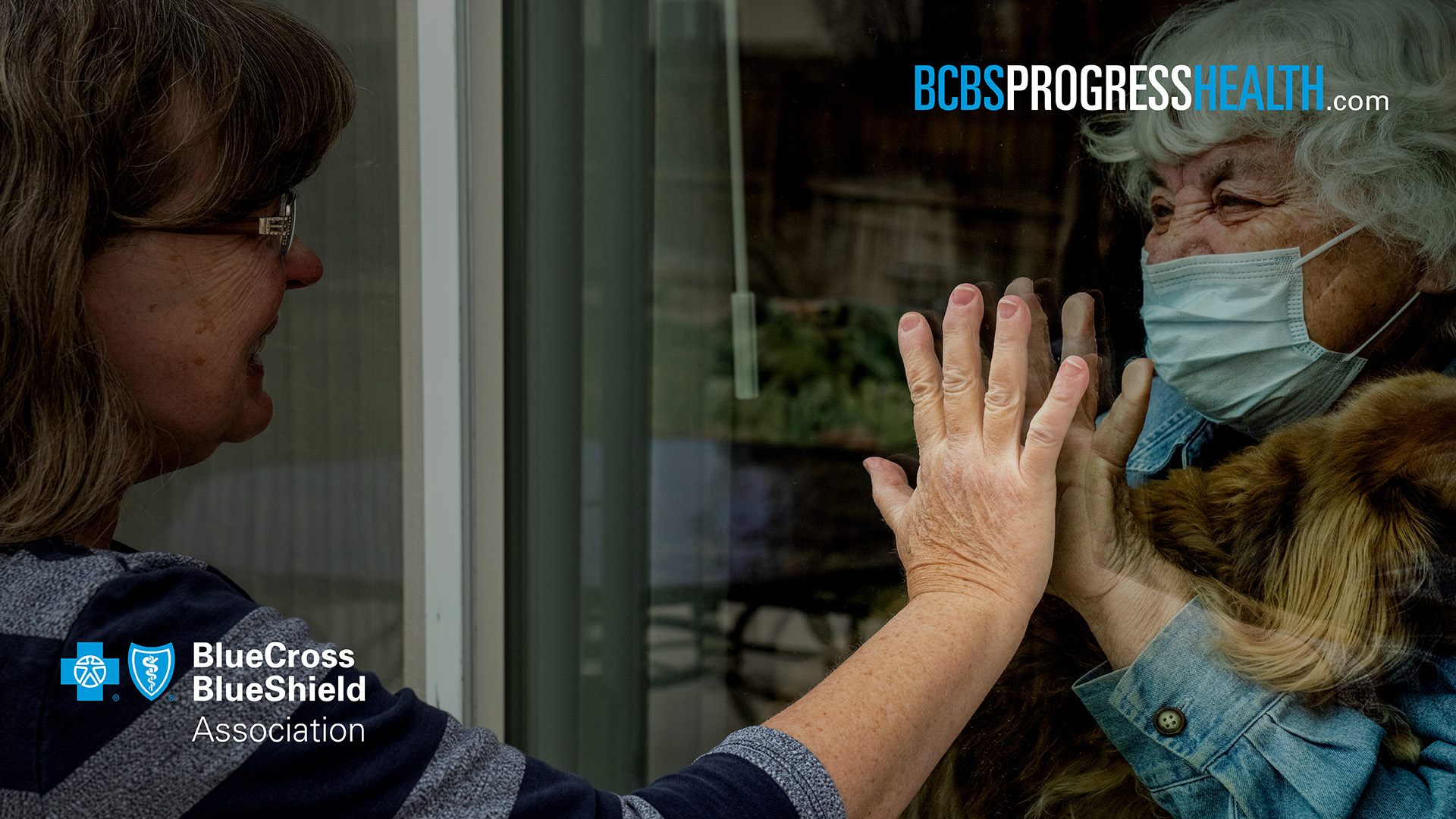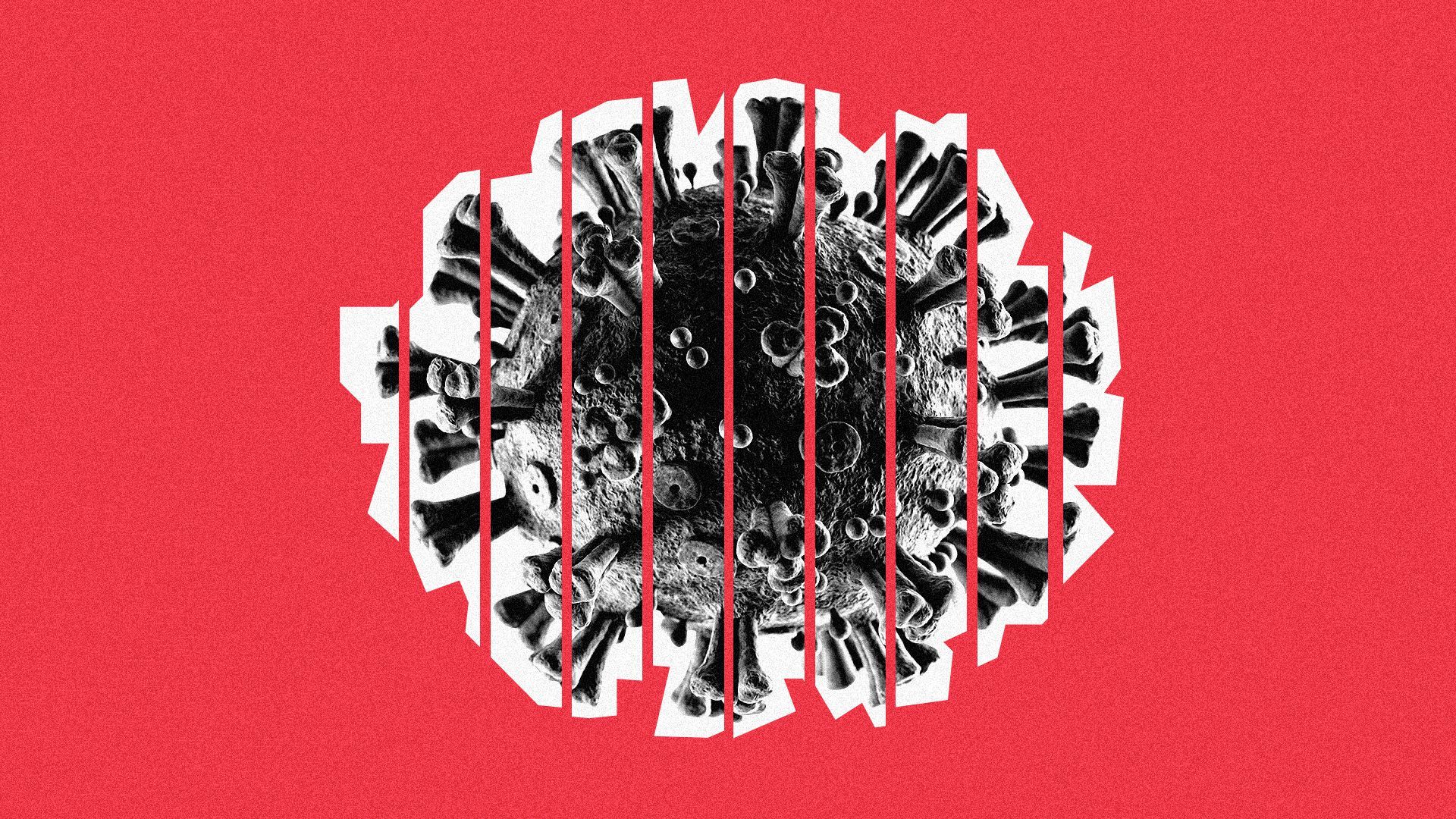| | | | | | | Presented By Blue Cross Blue Shield Association | | | | Vitals | | By Caitlin Owens ·Feb 16, 2021 | | Good morning. If you, like me, had a long weekend, I hope you enjoyed it! Situational awareness: President Biden has reopened Affordable Care Act exchanges for three months, starting yesterday. Today's word count is 1,106, or a 4-minute read. | | | | | | 1 big thing: How the winter surge changed COVID disparities |  Data: The COVID Tracking Project, U.S. Census Bureau; Chart: Andrew Witherspoon/Axios The giant surge of coronavirus cases in the fall and winter hit white Americans disproportionately hard, narrowing the racial disparities in COVID deaths. Yes, but: When age is factored in, Americans of color still have a significantly higher death rate than white Americans, meaning people of color are dying at younger ages. The big picture: The virus slammed the Midwest last fall, and then eventually spread rapidly across the entire country. - The Midwest has a higher white population than regions hit earlier on in the pandemic, particularly the South and the Sun Belt.
- For the first time during the pandemic, counties with the highest white populations saw the most deaths, according to an analysis done by Jorge Caballero, a clinical instructor of anesthesia at the Stanford School of Medicine.
 Reproduced from APM Research Lab; Chart: Axios Visuals Yes, but: White Americans have a lower age-adjusted death rate than any other racial or ethnic group besides Asian Americans, per APM Research Lab. - The median age of white Americans is significantly higher than Black or Hispanic Americans, putting them at disproportionate risk of COVID based on age alone.
- But other factors — like underlying health conditions and an increased risk of exposure — put younger people of color at a higher risk of death.
Between the lines: Economically vulnerable counties have higher COVID death rates generally than those that are more well-off, according to a recent analysis by the Economic Innovation Group. - And in the most economically distressed counties, the average coronavirus morality rate varies based on the racial composition of the county, the analysis found.
What we're watching: Racial disparities have already appeared in the vaccination effort, with communities of color initially falling behind. - If these disparities persist, particularly as new variants of the virus become more prevalent in the U.S., the gap between different racial groups' death rate will likely widen in the coming months.
|     | | | | | | 2. CEOs search for a bigger vaccine role |  | | | Illustration: Annelise Capossela/Axios | | | | CEOs — more trusted than government — want a larger role in what may be the biggest countrywide undertaking of our lifetimes: the mass rollout of coronavirus vaccines, Axios' Courtenay Brown reports. The big picture: A slew of big businesses are offering up the resources they have, including technical expertise and physical space. But there's no coordinated effort at the federal level to tap the full potential of the private sector's muscle. What they're saying: Neil Bradley, chief policy officer at the U.S. Chamber of Commerce, tells Axios there's an "overwhelming desire" from businesses to help with the vaccine rollout. Where it stands: Amazon and the NFL have pitched services and resources to the White House to help at the federal level. And national pharmacy chains will be instrumental in vaccine distribution as supplies increase and more of the population becomes eligible. - Otherwise, though, businesses' involvement is largely sporadic and primarily local or regional.
Yes, but: Private industry involvement may not be a save-all. A centralized vaccination-appointment system developed by Deloitte has been plagued with issues. Plus, the private sector can only do so much, given sensitivity around health information. - Varying state and local rules about who's eligible for vaccines have also made it harder for national chains to get involved, Walmart CEO Doug McMillon said last month.
There's one big way businesses can help — encouraging their own employees to get vaccinated. Go deeper. |     | | | | | | 3. The problem with vaccine patents |  | | | Illustration: Aïda Amer/Axios | | | | Open-source the vaccines. That's the message being sent by the People's Vaccine Alliance, a coalition that includes Amnesty International, Oxfam, and UNAIDS. Why it matters: Manufacturing capacity needs to be scaled up dramatically — and cutting out the need for laborious, expensive and secretive negotiations with vaccine patent holders could help, Axios' Felix Salmon writes. What they're saying: "None of the manufacturers today are remotely capable of meeting demand on a timely basis," says Knowledge Ecology International's Jamie Love. "Vaccine manufacturers are currently hoarding technology, for commercial reasons." By the numbers: Of the 108 million people vaccinated so far, only 4% have been in developing countries. - According to the Alliance, there are at least 20 more facilities in India alone that could start producing vaccine, and many more in other countries such as Argentina, South Africa, Brazil, Mexico, and Indonesia.
The big picture: While Operation Warp Speed helped to stand up new manufacturing facilities in the U.S., there has been little to no such investment in most of the rest of the world. How it works: While international trade law does allow countries to overrule patent protection for vaccines, countries tend to be very reluctant to do so, because they fear retaliation and also because they need help with the technical knowhow involved in manufacturing the vaccines. - Opening up manufacturing to a point where the patent holders have no oversight could lead to quality-control issues.
Go deeper. |     | | | | | | A message from Blue Cross Blue Shield Association | | Taking action to fight the pandemic | | |  | | | | Blue Cross and Blue Shield companies have committed more than $7 billion to help the nation address the COVID-19 outbreak by: - Providing premium relief.
- Enhancing access to telehealth.
- Investing to support people in need.
Learn more. | | | | | | 4. Good news about the Pfizer vaccine | | A recent study by Israel's largest healthcare provider found that after both doses of the Pfizer vaccine, people are 94% less likely to have symptomatic COVID-19 infections and 92% fewer cases of severe illness due to the virus, Reuters reports. Why it matters: Israel has been rapidly vaccinating its population, and the new study underscores how effective the vaccine is, as the data nearly matches Pfizer's Phase three clinical trial that showed the vaccine to be 95% effective, Axios' Maria Arias writes. Where it stands: According to Reuters, Clalit, the health system that covers most Israelis, compared 600,000 people who received both doses of the Pfizer vaccine against a same-sized group with matching medical histories who had not received the vaccine yet. - Researchers at the Weizmann Institute of Science reported a decline in hospitalization and serious illness in people aged 55 and older.
- "It shows unequivocally that Pfizer's coronavirus vaccine is extremely effective in the real world a week after the second dose, just as it was found to be in the clinical study," said Ran Balicer, Clalit's chief innovation officer.
- The data also indicates the Pfizer vaccine is "even more effective two weeks or more after the second shot."
|     | | | | | | 5. Catch up quick |  | | | Illustration: Aïda Amer/Axios | | | | The World Health Organization on Monday granted emergency authorization to the Oxford-AstraZeneca coronavirus vaccine. Studies show the coronavirus variant first detected in the United Kingdom is "likely" more lethal than the original strain, scientists with the British government said in an assessment released Friday. Biden's chief medical adviser, Anthony Fauci, told "Axios on HBO" that despite the effectiveness of the COVID-19 vaccines, emerging variants could pose a "stumbling block" and Americans shouldn't become complacent. Vice President Kamala Harris told Axios' Mike Allen in a backstage conversation for "Axios on HBO" that the Trump administration had "no stockpile" of vaccines upon leaving office. 32 million of 142 million rapid coronavirus tests distributed to states by the federal government have gone unused as of early February, the Wall Street Journal reports. China on Sunday accused the U.S. of "pointing fingers," following a statement from the Biden administration alleging that Beijing may have meddled into the World Health Organization's probe into the origins of the COVID-19 pandemic. The U.S. is home to 250 million adults, many of whom won't elect to be vaccinated. It's also now in control of a big chunk of the global vaccine supply. The White House says the U.S. will eventually donate excess doses to other countries, but it hasn't released a plan to do so, Axios' Dave Lawler reports. |     | | | | | | A message from Blue Cross Blue Shield Association | | Build on what we have to cover everyone | | |  | | | | Today, 90% of Americans have health insurance through their jobs, Medicare, Medicaid and the Affordable Care Act. To cover everyone, we must: - Expand financial assistance.
- Boost enrollment and outreach.
- Close the low-income coverage gap.
See how. | | | | | | Axios thanks our partners for supporting our newsletters.
Sponsorship has no influence on editorial content. Axios, 3100 Clarendon Blvd, Suite 1300, Arlington VA 22201 | | | You received this email because you signed up for newsletters from Axios.
Change your preferences or unsubscribe here. | | | Was this email forwarded to you?
Sign up now to get Axios in your inbox. | | | | Follow Axios on social media:    | | | | | |









No comments:
Post a Comment